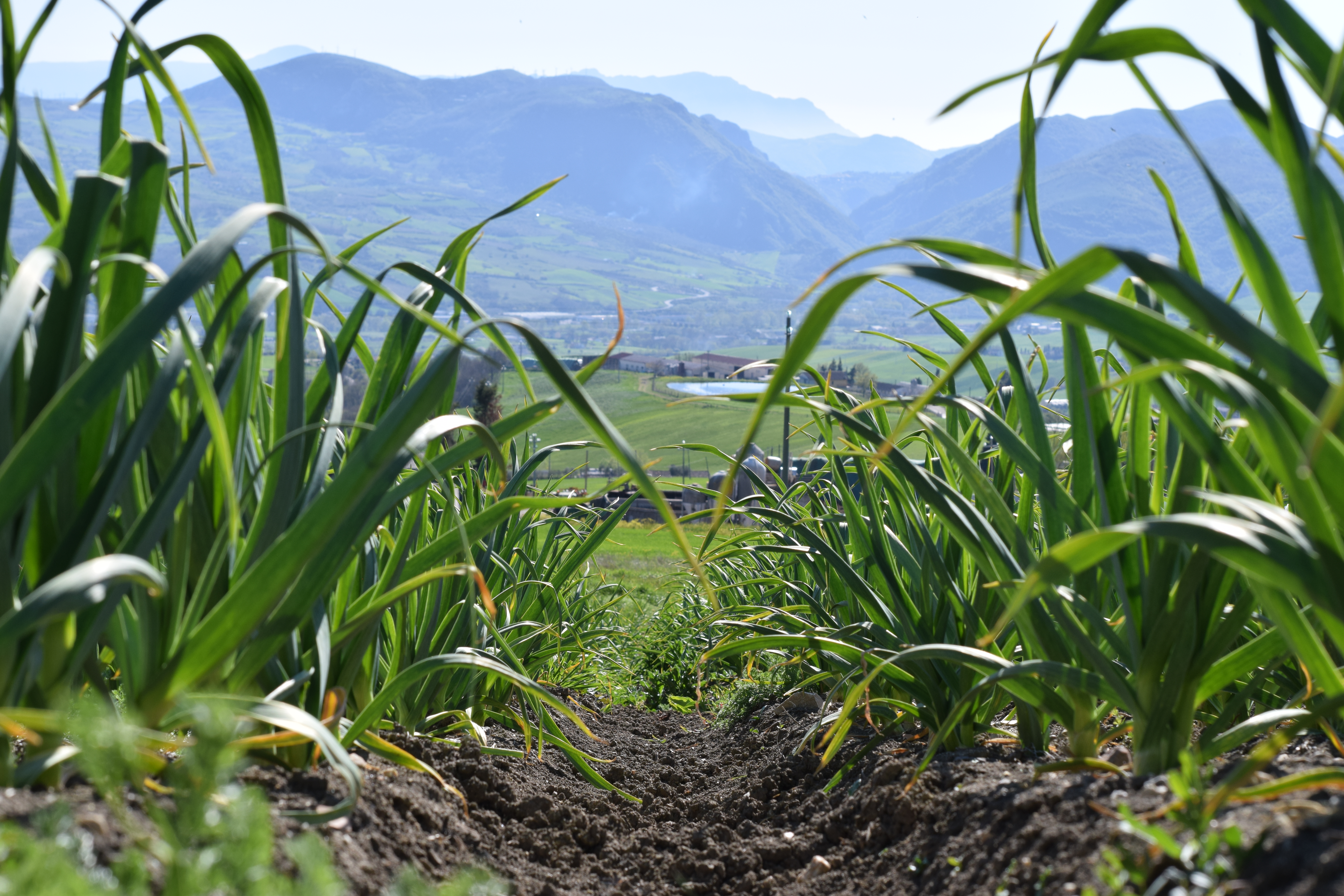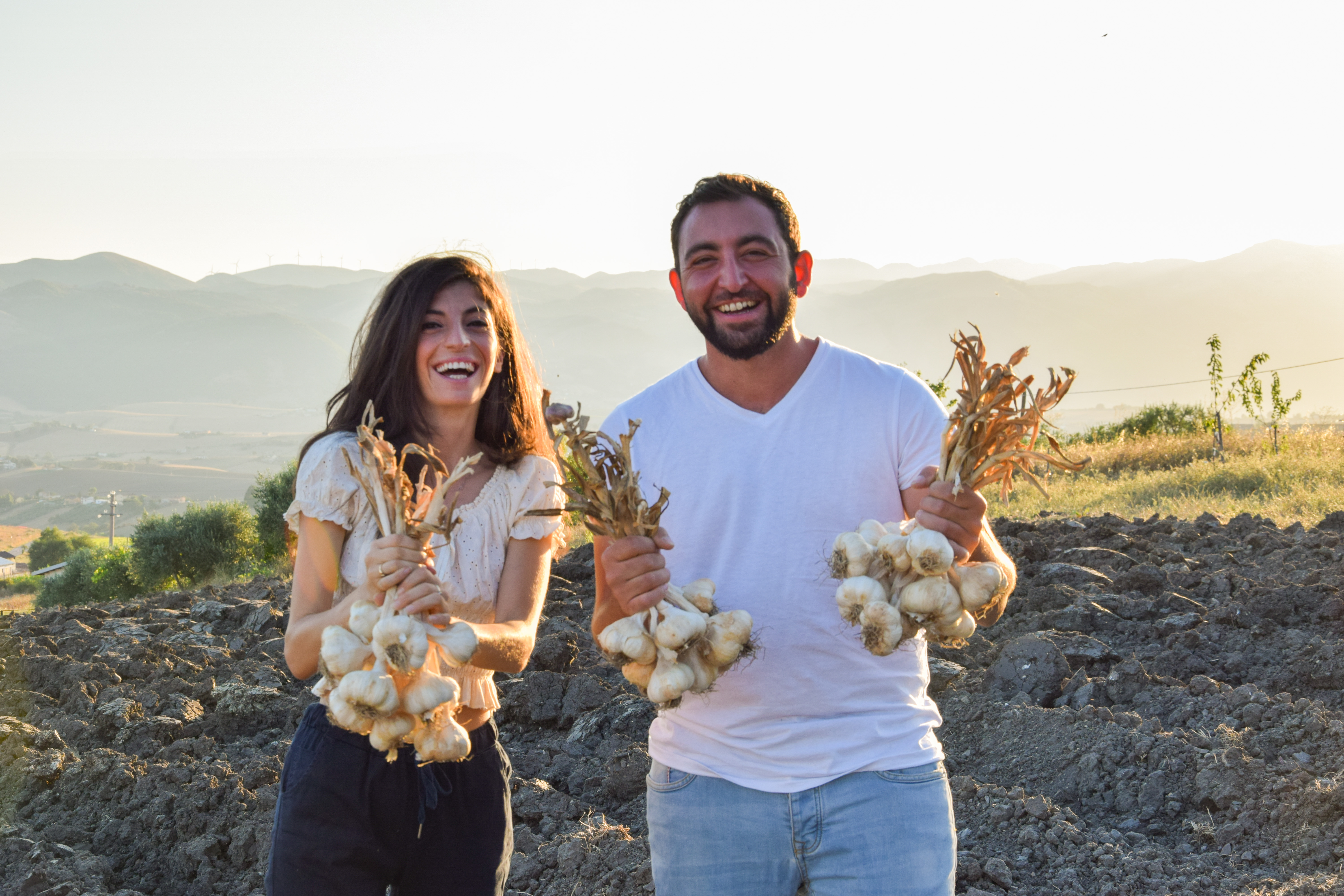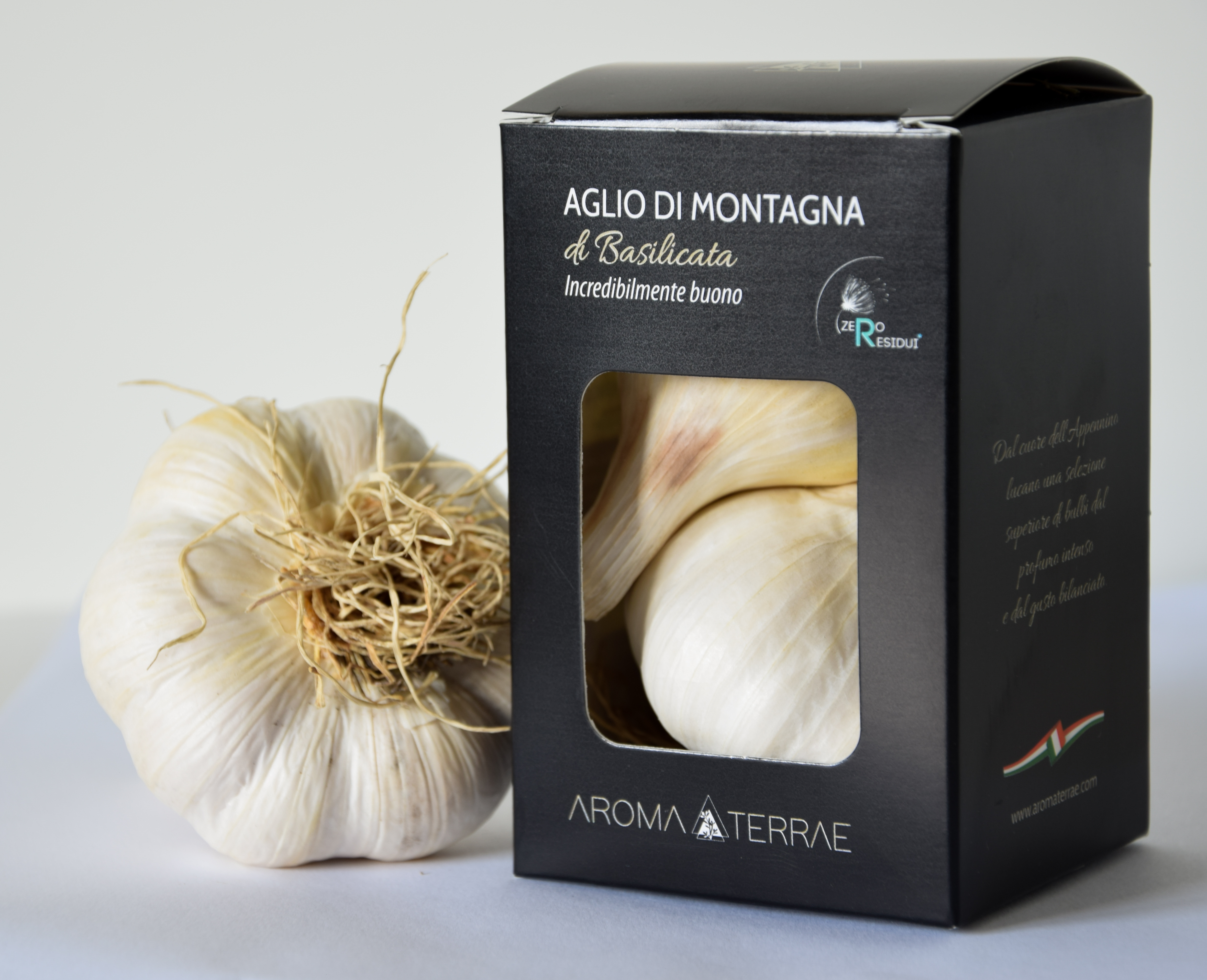
Aroma Terrae was founded in 2017 by two young people who, after leaving their hometown to study in Northern Italy, decided to head back in Basilicata to start their own agricultural project, all about growing garlic. In this rugged area where the only farming was for animal feed, Angelica and Francesco, who had just graduated, started experimenting with horticulture. They found out that the local climate and soil made their garlic high quality, with a great taste and a longer shelf life. Aroma Terrae has been producing and selling white garlic, handling everything from the field to the consumer. Year by year, they've refined their farming methods based on regenerative agriculture principles, ensuring a healthy product for consumers and sustainable practices for the environment. Their virtuous farming techniques earned them the "Zero Pesticides" certification. After harvesting, garlic is stored, sorted, and packaged in their warehouse, which is powered entirely by solar energy. Today, Aroma Terrae's garlic stands out thanks to the quality label "Mountain Product," which highlights its unique origin. This turns the challenge of mountain horticulture into a selling point. Other strengths include their completely plastic-free packaging and the artisanal, hand-selected quality control, which ensures high standards.
Context
Angelica and Francesco met during their university studies and decided to start Aroma Terrae to give themselves a chance to return to their hometown, combining their skills (Marketing for Angelica and Agricultural Sciences for Francesco) into a life and work project. Using their small savings, they bought a handful of different garlic seeds and a small seeder. They began experimenting, collecting data, and observing which garlic varieties worked best in their area. Today, Angelica handles the administrative and commercial side of the business, while Francesco takes care of primary production and logistics. Their biggest initial challenge was finding enough land. Aroma Terrae has always practiced crop rotation, which means each garlic field is left to rest for at least three years after harvest. This requires more land for the company and significantly increases costs and resources needed to restore soil fertility, usually after years of monoculture (hay forage). Aroma Terrae's farming methods include cover crops, green manure, preference for mechanical over chemical interventions, and manual weed removal. Plus, Aroma Terrae is always working to keep consumers aware of the actions they're taking to make their products healthy, safe, and sustainable. Their storytelling aims to create.
Aims &Objectives
Activities
Certainly, the Aroma Terrae project brings benefits to its two founders, who have created an opportunity to earn a living by doing what they studied for, what they love, and by living in their hometown, where job opportunities are scarce. Secondly, the employees of the company have found employment opportunities, avoiding the prospect of having to emigrate. The landowners whose lands Aroma Terrae now manages through rental contracts (approximately 10 hectares) not only benefit economically but also see improvements in soil fertility and organic matter content. Lastly, the customers: they are increasingly loyal, aware of the quality of the product they are purchasing, and eager to connect with the company to establish a human connection that goes beyond the product.
Quantitative results include:
Lessons & Recommendations
An employee saying: "Ever since I started working, my kids have been asking for their weekly allowance from both me and their dad". A loyal customer who, after the product ran out, writes directly to the company in alarm, asking if the supermarket chain had removed Aroma Terrae garlic from its shelves because they "can't do without it anymore." Everytime people recognize us the courage and the pride to invest in our land.

